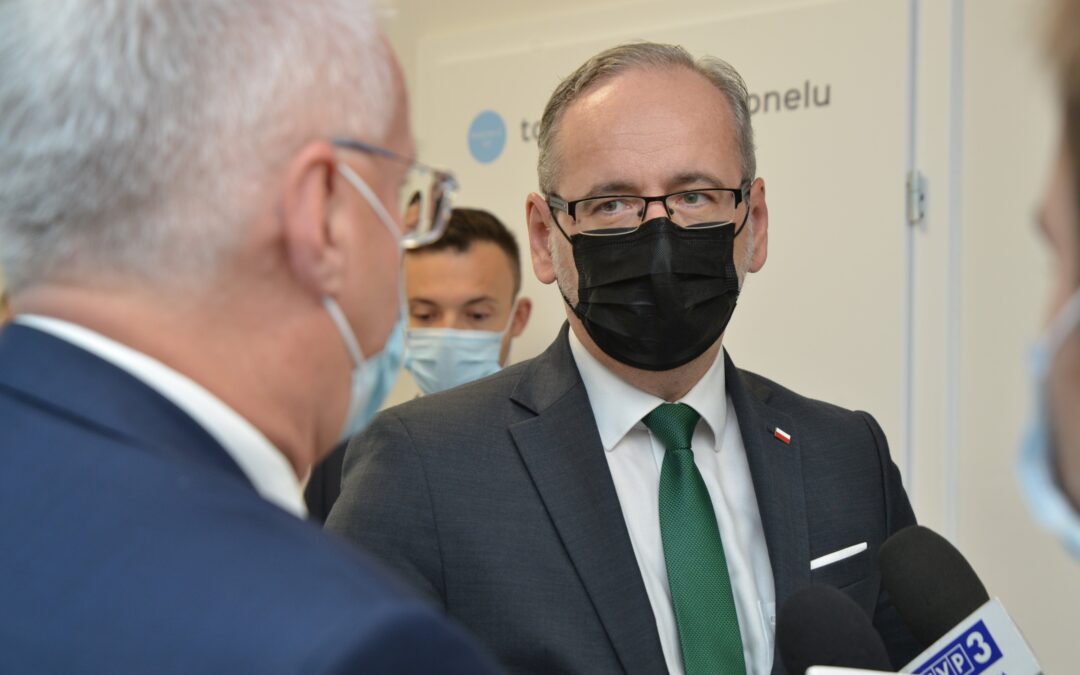Poland’s health minister has said that the government is not planning another national lockdown in the event of a fourth wave of the COVID-19 pandemic. Instead, regional restrictions are more likely.
In an interview with Fakt, a popular tabloid, Adam Niedzielski also said that businesses with vaccinated staff will likely continue to operate without restrictions in the coming months.
Niedzielski said that the provinces with the lowest vaccination rates will “definitely” be most at risk of new restrictions being put in place. These currently include Warmińsko-Mazurskie, Podlaskie, Lubelskie, Świętokrzyskie and Podkarpackie.
The minister also said the government was considering allowing businesses with vaccinated workers, especially in customer-facing roles, to be excluded from the restrictions. He suggested that unvaccinated workers should be moved to roles where they do not interact with customers “where they will not constitute an epidemic threat”.
Also on Friday morning, Michał Dworczyk, the prime minister’s chief of staff and the official charged with overseeing Poland’s vaccine rollout, mentioned that the government plans to allow businesses to separate unvaccinated staff from customers and those who have had the jab.
The project, which is set to be considered by parliament during its next sitting on 11 August, would mean that employers could question their staff about whether they have been vaccinated. Employees are currently under no obligation to disclose that information.
According to Rzeczpospolita, this could mean that unvaccinated workers will be moved to lower-paid positions or even laid off. Trade unions including the largest, Solidarity, have called on the government to ensure that unvaccinated workers are not adversely affected by the new rules.
“The most important thing in the new regulations will be whether business owners will be able to verify information in public systems. Without this, the new regulations will not change much, Dominika Dörre-Kolasa, a partner at Raczkowski legal firm, told the paper.
Also reacting to the news, Szymon Hołownia, leader of the second most popular opposition party, Polska 2050, emphasised that “the government intends to shift responsibility to businesses” since a large share of Poles “do not want to be vaccinated”.
Earlier this week, unofficial reports claimed that the government did not, however, intend to make access to certain venues and services dependent on vaccination, as has been done in France and some other European countries.
The minister said that the government expects that case numbers – today’s daily total was 153 – will accelerate in mid-August. “Returns from holidays will begin, families will start getting ready to go back to school and work,” he said.
Niedzielski said the “blackest scenario” involved around 15,000 daily COVID-19 cases by the end of September, while a more optimistic case would involve 1,000 daily cases. “Now which scenario will be implemented will depend on how many people get vaccinated,” Niedzielski told Fakt.
The government has warned that registrations for vaccines are slowing down and has made efforts to encourage uptake. As of this morning, 17.3 million people in Poland – under 46% of the population – were fully vaccinated and 48% had had at least one dose.
Main image credit: Ministerstwo Zdrowia/Twitter

Maria Wilczek is deputy editor of Notes from Poland. She is a regular writer for The Times, The Economist and Al Jazeera English, and has also featured in Foreign Policy, Politico Europe, The Spectator and Gazeta Wyborcza.




















